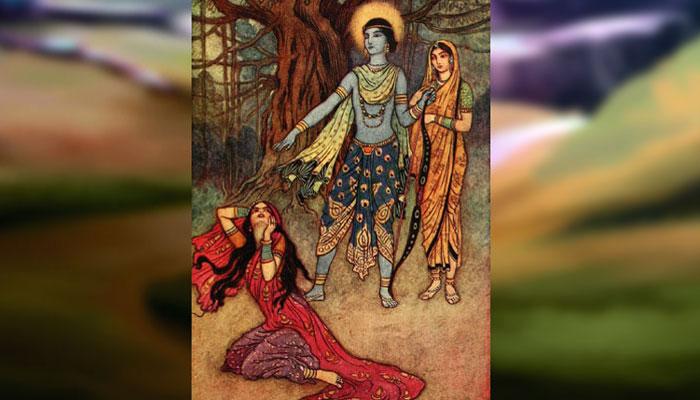Was Surpanakha actually a woman of wisdom?
Trending Photos
)
We have often heard of Surpanakha as a villainous woman – the sister of Ravan, the king of Lanka. She was a fierce looking demoness, who created the illusion of being a beautiful temptress, when she chanced upon Lord Ram and Lakshman in the forest.
But spurned by both, and after Lakshman cut off her nose and ears, she laments about her hideous condition to her cousins Khar and Dushan.
However, with the inevitable destruction of Khar and Dushan at the hands of Lord Ram when they attacked him as a retaliation to Surpanakha’s condition, she has no other avenue but to approach Ravana and instigate him.
What follows is masterpiece in oratory in Ravan’s assembly and it is this that forces us to acknowledge the wisdom that Surpanakha possessed.
In great fury, Ravan’s sister Surpanakha berates him telling him that he had no heed of the enemy on his head and spent his days in wallowing luxury, food and drink.
Warning Ravan of his inaction and lack of preparedness about the challenge posed by human princes from Ayodhya, she gives us knowledge about things that we must not take lightly. She says, “No person should treat an enemy, a malady (disease), fire, a sin he has done, a master, or a serpent as trifles for they can all heap much damage.”
Surpanakha also gives credence to maxims that she has learnt and understood. She means to tell Ravan that he can be undone in no time if he did not pay attention to ancient wisdom which warns that just as:
- A recluse is quickly undone by attachment
- Knowledge undone by conceit
- Modesty undone by consuming alcohol
- Friendship by want of love
- Man of merit by vanity
- And in context of Ravan, a king is undone by evil counsel
She then talks about Niti (policy) related with life approach and our behaviour. About deeds that we all do, she tells Ravan that he must remember that actions can be fruitless when done without certain qualifications. For example, Surpanakha tells her brother that for a king, sovereignty is useless without political insight. Here she seems to be taking a dig at him for not having vision of foreseeing developments that can challenge his authority.
Similarly, for a rich man, wealth divorced from virtue is futile.
And for a good human being, noble deeds meant little unless they are offered to Sri Hari (God) first. This comment comes as surprise for Surpanakha had sought to seduce Sri Hari himself.
She further elaborates that for students, learning would be only an exercise unless it begot him wisdom and discretion.
So saying, Surpanakha began weeping and asked Ravan to restore her honour.







)
)
)
)
)
)
)
)
)
)
